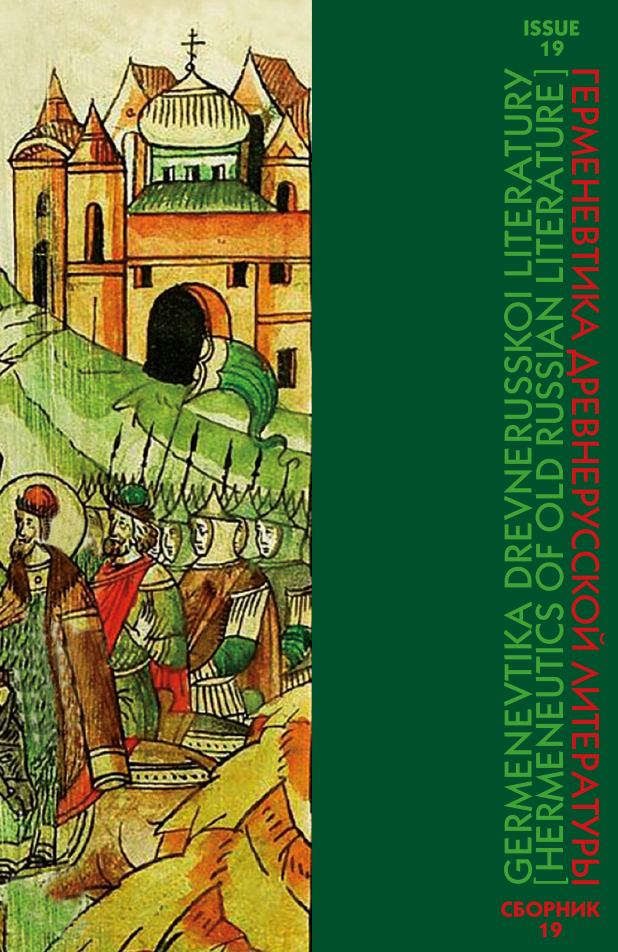Abstract: Researchers of the Renaissance culture have repeatedly noted the original “universalist” notions of personality peculiar to the treatises of this period. Thus, according to L. M. Batkin’s observation, a ruler, described in the Machiavelli's treatise “Sovereign” simultaneously combines incongruous traits ― kindness and anger, simplicity and insidiousness and so on. In the article below, some similar incongruity is traced in the writings of the Tsar Alexey Mikhailovich. There are three levels in the narrator’s perception of reality ― private (personal), court (associated with service) and eternal (religious-existential). Switchings between these levels occur instantly and arbitrarily.
Private, ceremonial and eternal in “The tale of the death of the Patriarch Joseph”

- Full text:
- Information about the author:
Daria S. Mendeleeva – PhD in Philology, Senior Researcher, А. M. Gorky Institute of World Literature of the Russian Academy of Sciences, Povarskaya 25 а, 121069 Moscow, Russia.
E-mail: This email address is being protected from spambots. You need JavaScript enabled to view it.
- For citation:
Mendeleeva D. S. Private, ceremonial and eternal in “The tale of the death of the Patriarch Joseph”. Hermeneutics of Old Russian literature: Issue 18 / А.M. Gorky Institute of World Literature of the Russian Academy of Sciences; ex. ed. О.A. Tufanova. Мoscow, Berlin, Directmedia Publishing, 2019, pp. 439–445.
DOI: 10.23681/500100 (In Russ.) - DOI: 10.23681/500100
- Keywords: World outlook, epistolary heritage, literary creation, tzar Alexey Mikhaylovich Romanov.





